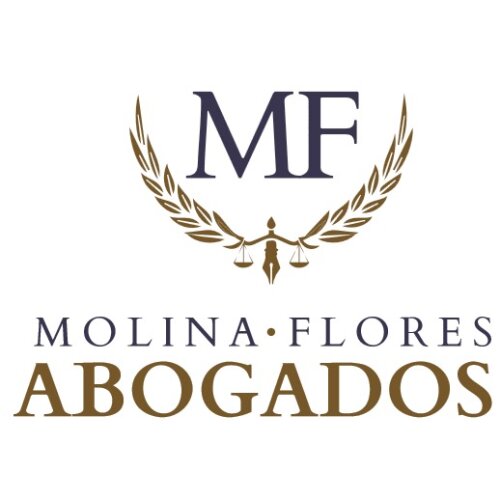Best Structured Finance Lawyers in Mexico
Share your needs with us, get contacted by law firms.
Free. Takes 2 min.
Or refine your search by selecting a city:
List of the best lawyers in Mexico
About Structured Finance Law in Mexico
Structured Finance is a sophisticated segment of the financial industry designed to manage risk and create customized financial solutions. In Mexico, Structured Finance typically involves pooling financial assets, such as mortgages or receivables, and converting them into tradable securities. These can be asset-backed securities (ABS), mortgage-backed securities (MBS), or other structured products. The goal is to facilitate funding, transfer risk, and improve capital efficiency for corporate borrowers, banks, and investors.
Structured Finance transactions in Mexico have grown in popularity due to the expansion of the capital markets and regulatory reforms that provide distinct legal frameworks for securitization, trusts (fideicomisos), and the issuance of debt instruments. The legal landscape is influenced by rules developed by Mexican banking, securities, and tax authorities, along with civil law principles governing trusts and contract arrangements.
Why You May Need a Lawyer
Engaging a lawyer with expertise in Structured Finance is essential in several scenarios, including:
- Structuring and documenting asset-backed security or mortgage-backed security transactions
- Setting up and managing trusts or fideicomisos for securitization purposes
- Complying with regulatory and tax obligations for issuing structured instruments
- Negotiating and drafting complex agreement layers, such as servicing, management, and payment mechanics
- Participating in cross-border finance involving Mexican assets or issuers
- Resolving disputes or defaults related to structured finance products
- Conducting due diligence for investment in structured products
- Handling legal opinions required by investors, rating agencies, or regulatory bodies
A legal specialist can ensure your transaction complies with all local law nuances, helps mitigate risks, and protects your interests throughout the process.
Local Laws Overview
The legal framework for Structured Finance in Mexico is a combination of several statutes and regulations:
- General Law of Negotiable Instruments and Credit Transactions (LGTOC): Governs the creation and transfer of credit instruments and some types of trusts used in securitizations.
- Securities Market Law (LMV): Sets rules for public offerings and the regulation of securities, including asset-backed securities (certificados bursátiles fiduciarios, or CBFs).
- Commercial Code: Covers commercial contractual arrangements and foundational principles for business transactions.
- Income Tax Law and Value Added Tax Law: Outline tax obligations and mechanisms relevant to structured finance and securitization vehicles.
- Banking and Financial Institutions Laws: Contain prudential requirements and limitations for banks and non-bank financial entities engaged in structured finance activities.
- Regulations by the National Banking and Securities Commission (CNBV): Establish operational, reporting, and disclosure standards for market participants.
The use of trusts (fideicomisos) is particularly important. They are the preferred legal vehicle for holding assets, issuing structured securities, ensuring bankruptcy remoteness, and managing payment flows.
Frequently Asked Questions
What is Structured Finance in the context of Mexico?
Structured Finance in Mexico refers to financial transactions that use asset pools and complex legal structures, such as trusts and securitizations, to create investment products usually traded in the Mexican capital markets.
What are the most common structured finance products in Mexico?
The most common products include asset-backed securities (ABS), mortgage-backed securities (MBS), and secured debt instruments known as certificados bursátiles fiduciarios (CBFs).
How do trusts (fideicomisos) function in these transactions?
Trusts are used to hold the underlying financial assets, keep them separate from the originator’s assets, and issue securities. They serve as legally robust vehicles that protect investors and facilitate investment flows.
Who regulates structured finance activities in Mexico?
The primary regulator for these activities is the National Banking and Securities Commission (CNBV). The Ministry of Finance and Public Credit (SHCP) and the Mexican Stock Exchange also play important roles.
Are foreign investors allowed to participate in Mexican structured finance deals?
Yes, foreign investors can participate, subject to certain registration, disclosure, and tax compliance requirements. The process may involve additional due diligence and legal opinions.
What are some key risks associated with structured finance transactions?
Risks include changes in regulations, tax treatment, credit risk of underlying assets, counterparty risk, and possible market or liquidity risks.
Is it necessary to obtain a legal opinion for a structured finance transaction?
Although not always legally required, a legal opinion is usually critical to provide comfort to investors, rating agencies, and service providers on compliance, enforceability, and bankruptcy remoteness.
What tax considerations impact structured finance in Mexico?
Certain withholding taxes, income tax implications for the vehicle and investors, and value-added tax (IVA) may apply. Specialized tax structuring may be required to optimize outcomes.
What disclosures are required for public issuances of asset-backed securities?
Disclosures focus on asset description, cash flow structuring, risk factors, servicing arrangements, and legal opinions. The CNBV has specific prospectus and ongoing reporting rules.
How can legal disputes arising from structured finance be resolved?
Disputes can be resolved through litigation in Mexican courts or arbitration, depending on the contractual agreements among involved parties. Alternative dispute resolution methods are also commonly used.
Additional Resources
For more information or direct assistance, consider these resources:
- National Banking and Securities Commission (CNBV): Regulatory guidance and public resources for securities market participants.
- Ministry of Finance and Public Credit (SHCP): Policy documents and fiscal regulations relevant to structured finance.
- Mexican Stock Exchange (BMV): Listings, guidance, and statistics for structured finance instruments.
- Mexican Association of Securities Intermediaries (AMIB): Professional standards and educational resources.
- Legal and professional organizations: Several bar associations and law firms offer publications and seminars on Structured Finance topics.
Next Steps
If you require legal assistance in Structured Finance, consider the following steps:
- Document your objectives and outline the financial or investment transaction you plan to undertake.
- Gather all relevant documents, including asset information, draft agreements, and disclosures.
- Consult with an experienced Mexican legal professional specializing in Structured Finance. Seek recommendations or referrals if possible.
- Assess your lawyer’s credentials, prior case experience, and understanding of both local and cross-border transactions.
- Discuss potential legal strategies, required documentation, and anticipated timelines.
- Work closely with your legal advisor to ensure efficient structuring, compliance with regulations, and thorough risk management.
By following these steps and leveraging professional assistance, you will be better equipped to navigate Mexico’s Structured Finance landscape with confidence.
Lawzana helps you find the best lawyers and law firms in Mexico through a curated and pre-screened list of qualified legal professionals. Our platform offers rankings and detailed profiles of attorneys and law firms, allowing you to compare based on practice areas, including Structured Finance, experience, and client feedback.
Each profile includes a description of the firm's areas of practice, client reviews, team members and partners, year of establishment, spoken languages, office locations, contact information, social media presence, and any published articles or resources. Most firms on our platform speak English and are experienced in both local and international legal matters.
Get a quote from top-rated law firms in Mexico — quickly, securely, and without unnecessary hassle.
Disclaimer:
The information provided on this page is for general informational purposes only and does not constitute legal advice. While we strive to ensure the accuracy and relevance of the content, legal information may change over time, and interpretations of the law can vary. You should always consult with a qualified legal professional for advice specific to your situation.
We disclaim all liability for actions taken or not taken based on the content of this page. If you believe any information is incorrect or outdated, please contact us, and we will review and update it where appropriate.
Browse structured finance law firms by city in Mexico
Refine your search by selecting a city.

















